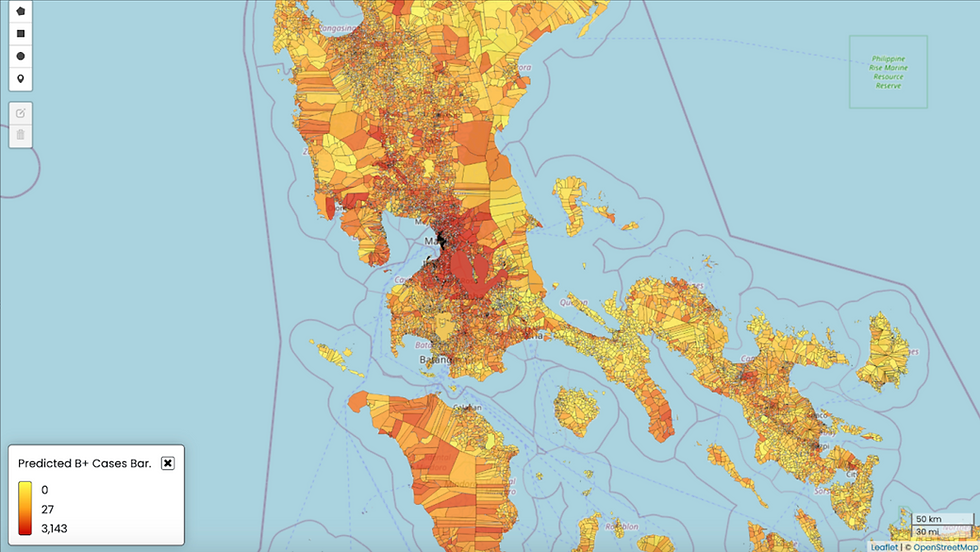Epcon's Engagement in One Health
- Caroline Van Cauwelaert
- Jun 3, 2024
- 3 min read
Updated: Jun 5, 2024
Presenting at the OneHealth event on the 23rd of April was a truly enriching experience. These stimulating events are organised by the One Sustainable Health for All Foundation, launched in 2021, with the aim of bringing together human, animal and environmental health professionals to work together on implementing sustainable health initiatives.
The goal is to foster public and private sector collaboration, align health efforts with the UN’s Sustainable Development Goals, and develop actionable recommendations to enhance global health resilience. Activities at these events include panel discussions, workshops and networking opportunities to help drive innovation and policy integration in health.
The event we attended was held under the auspices of Belgian Presidency of the Council of the European Union 2024. It was co-organized by Leuven One Health, One Europe for Global Health, One Sustainable Health for All Foundation and Virchow Foundation for Global Health.

Caroline Van Cauwelaert, our CEO, delivered a compelling presentation on “Strengthening Public Health through Artificial Intelligence” during the ‘Power of Data for One Health” panel. She demonstrated the versatility of AI in achieving diverse public health objectives, such as enhancing TB detection and identifying vulnerable population groups. Using over 40 data sources – including surveillance, health systems, socio-demographic, spatial and environmental data – we optimised the placement of 40 mobile chest X-ray screening vans in Pakistan, thereby increasing TB yield by 100%. In Belgium, we combined different data sources, from health-seeking behaviour to data on criminal activities, to locate populations with higher vulnerability risks.
Besides our presentation, the event was brimming with captivating presentations and discussions, facilitated by a diverse range of speakers and moderators. Among the many standout talks, these particular speakers and topics left a lasting impression:
Sophie Vanwambeke from the Earth and Life Institute at Belgium’s Université catholique de Louvain (UCLouvain) focused her talk on landscape epidemiology. This field integrates principles from ecology, geography and epidemiology to understand how environmental factors such as land use, vegetation, climate and human activities influence the spread and prevalence of diseases. The speaker emphasised how the farming of certain crops impacts malaria, highlighting the need for continuous surveillance and hotspot modelling to control this infectious disease.
Brent Loken, the Food Lead Scientist at WWF and a member of the EAT-Lancet Commission, addressed the challenge of providing a growing global population with healthy diets from sustainable food systems. He discussed WWF’s useful Planet-Based Diet Impact and Action Calculator, a tool that helps users understand the environmental impact of their dietary choices and suggests actions to reduce their ecological footprint.
Armelle Herbert, who leads Strategy, Innovation and Partnerships of the One Health Advanced Studies Institute, discussed the Institute’s efforts to target infectious diseases by measuring pathogens in sewage systems and water. This approach aligns closely with EPCON’s methods: we also utilise a wide range of contextual data to estimate disease burden, making her talk highly relevant to our own work.
Lastly, Chris Walzer, Executive Director of Health at the Wildlife Conservation Society, alerted the group to the critical issue of constructing roads in forests. He highlighted the dangerous consequences, including increased contact between people and wild animals which raises the potential for the spread of zoonotic viruses. His insights underscored the importance of managing human-livestock-wildlife interfaces across Europe, Asia, Africa, and Latin America to mitigate these risks.
In closing, One Health’s philosophy aligns strongly with our goals and methodologies. OneHealth seeks to optimise the health of people, animals, and ecosystems by recognising their interconnectedness and promoting cross-sectoral collaboration to address health challenges like infectious diseases, antimicrobial resistance, and food safety. By drawing on a wide variety of contextual data, from road networks to climate change, we understand the interconnection between various variables, whether we’re assembling predictive models for infectious disease control or locating vulnerable populations. Moreover, we firmly believe that collaborative efforts are essential for building resilient health systems worldwide.


